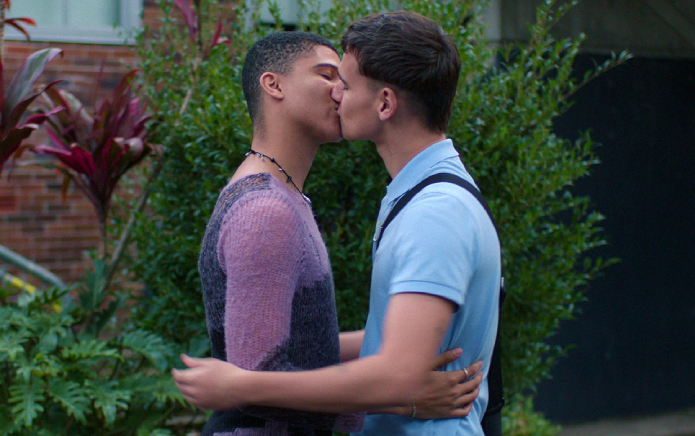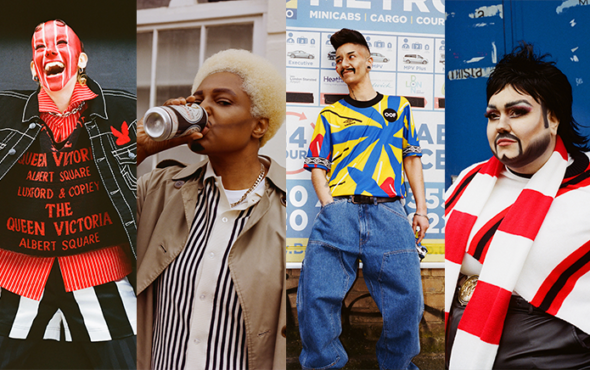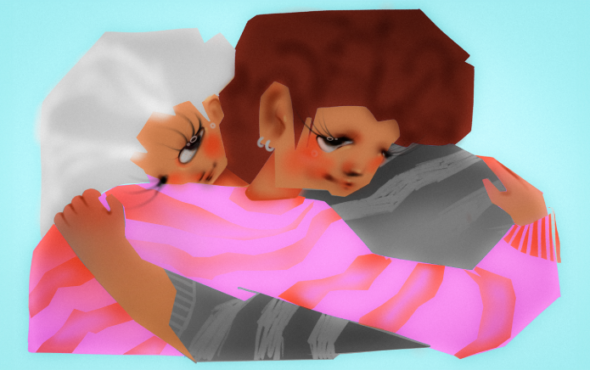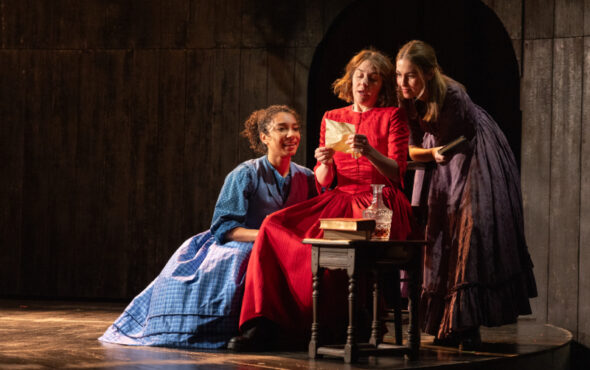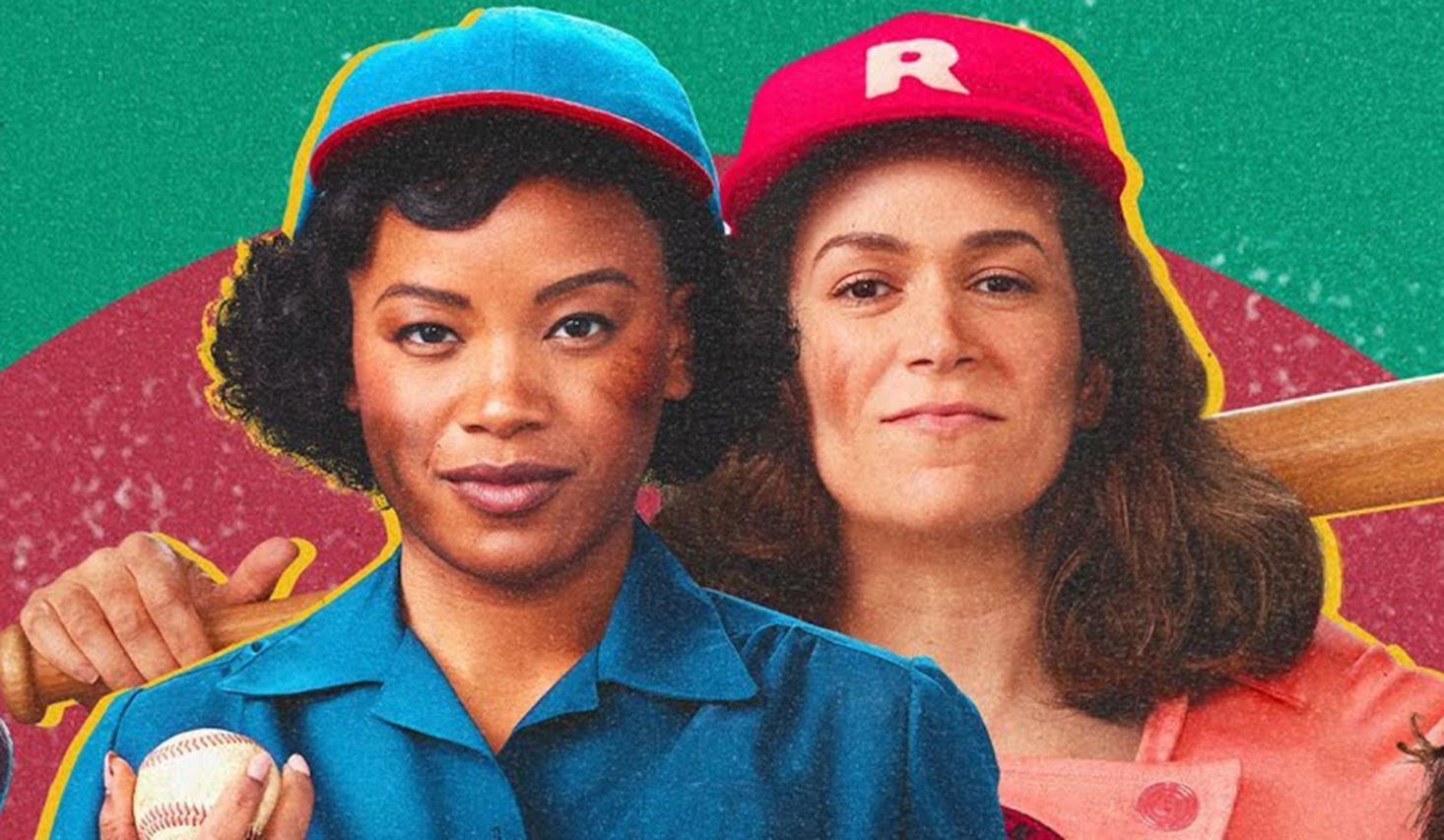
“A League of Their Own is such a gay film and not gay at all, simultaneously,” laughs Abbi Jacobson. The Penny Marshall-directed sports dramedy, telling a fictionalised account of the real life All-American Girls Professional Baseball League, has been reclaimed as a queer cult classic since its 1992 release due to its sapphic themes and subversion of traditional gender roles. Queer awakenings sparked by Madonna’s tough-as-nails centre field Mae Mordabito and Rosie O’Donnell’s butch, third base bouncer Doris Murphy, as well as the iconic scene of Geena Davis’ Dottie Hinson effortlessly catching a baseball with her bare hand, have all contributed to its enduring queer legacy. While the film respectably tackled issues pertaining to sexism, gender and exclusion, it didn’t authentically honour the behind-the-scenes queerness of the league. With Prime Video’s new reimagining, Jacobson – who stars and co-created the series with Will Graham – is aiming to change that.
“Will and I are both queer, and it was part of our initial conversation of what types of stories we felt were not told in the film,” the star tells GAY TIMES. “The more research we did, the more we found out that the league in particular was really queer. Also, queer people didn’t just show up in Stonewall, we’ve been around forever! So, what was queer life inside the All-American Girls League and outside, in general, in 1943? What was that like?” Jacobson, best known for her beloved role as Abbi Abrams in Comedy Central’s Broad City, which she co-created with Ilana Glazer, stars in the lead role as Carson Shaw, an endearingly awkward yet talented baseball player who abandons her home and army husband to pursue a career with the league, called the Peaches. Carson, who is in a comfortable marriage but has been forced to live in the closet, subsequently finds her “community” with the Peaches including D’Arcy Carden’s Greta, a cool Mae Morbadito-type who she passionately locks lips with in the premiere and embarks on a forbidden romance with across the series.
“There’s not just one queer character in the show,” Jacobson explains. “There’s a lot, and there’s different types of queerness. That was so important to us. I felt like we were telling stories of the women that have not been told, and it felt like a great honour and responsibility to do it and have it nuanced, meaty and juicy. It was exciting to get to tell all those stories.” Graham says he and Jacobson ‘loved’ the original film’s queer subtext, citing it as a crucial reason as to why they were drawn to the story. And, with the hidden queer history of the league, the co-creator admits that it wasn’t necessary to “add those elements” or “turn them up” for entertainment purposes. “The real story here is incredibly queer,” he says, “and it’s centered on women of colour in addition to white women, and it’s inherently inclusive. So, all we did was turn back to the real stories and look back at them through a wider lens. Everything in the show is based on something real. Probably for you and for me and for queer kids, we got the feeling that there was something in the tone of this movie that was for us, but you still had to imagine yourself in it. Now, we can see ourselves and that’s a really big deal.”
Maybelle Blair, one of the league’s original members, came out as gay earlier this year at 95. At a recent screening of the new series at the Frameline San Francisco International LGBTQ+ Film Festival, Blair – a pitcher for the league’s Peoria Redwings in 1948 – revealed that at least “400” of the 650 players were gay. Although she assumed she’d be the “only” LGBTQ+ person on the team, she said it took her “about 24 hours” to discover that she wasn’t alone. “But it was wonderful,” she explained. “So many of the girls came from farms and they came in from all over the United States. […] There were so many gays in the league. It was amazing. But let’s face it, we’re good athletes!”
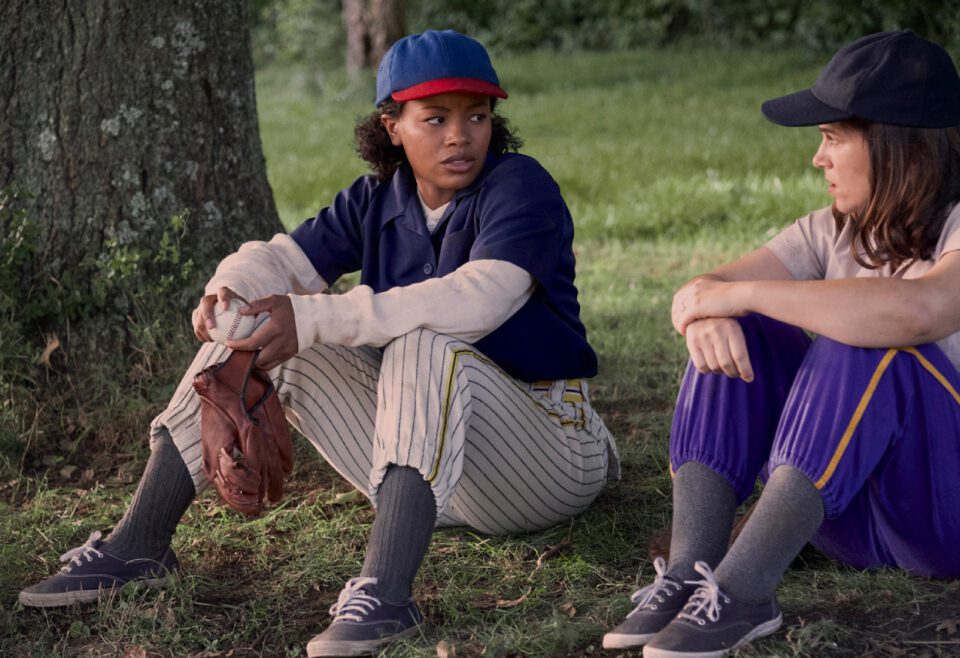
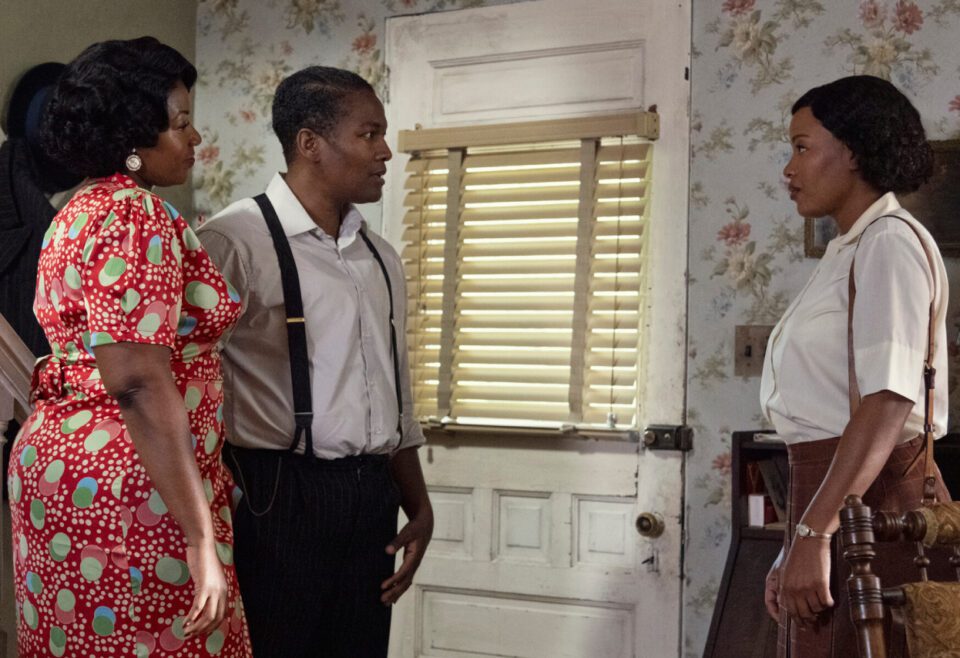
The premiere episode of A League of their Own makes it abundantly clear that it won’t queer-bait like the Marshall original and will honour Blair’s experience with the development of Carson and Greta’s romance, as well as the introduction of Chanté Adams’ closeted character Max, an ambitious and proficient pitcher who’s denied a spot on the team due to the era’s racial prejudice and discrimination. While the series leans harder into the team’s queerness, it also further explores how Black players were shunned from professionally playing baseball. Throughout the eight-episode first season, Max is also seen coming to terms with, not only proving her skills in a cis, white and male-doinated field, but living at the intersection of Black and LGBTQ+. “People need to see themselves on the screen,” Adams tells GAY TIMES. “I feel like a lot of communities connected with A League of Their Own, outside of just white women, because they know what it means to be an underdog and a marginalised community, and to be told that you can’t do something. So, we were all fighting for them in that film. That’s what is so special about our series; we’re bringing that same spirit to what we are doing, while showcasing representation so people can see themselves on the screen as well.”
“Just to piggyback on that,” adds Jacobson, “it’s so important to see yourselves, but also to see others’ experiences and relate to that, to see yourself in something you haven’t felt connected to and for other people to see that experience on screen.” While A League of Their Own is a comedy series at heart, it also serves as an educational tool to the experiences of LGBTQ+ people in the 1940s. As the series progresses, audiences are introduced to a plethora of queer characters on and off the team, including the Peaches’ brash pitcher Jess (Kelly McCormack) and Max’s poised trans uncle (Lea Robinson), as well as a hidden queer bar – owned by a new LGBTQ+ character played by original star Rosie O’Donnell – with entry relying on whether you can correctly answer if you’re a “friend of Dorothy”; a secret code word pre-dating back to World War II used by the community to safely identify one another. For Graham, it was essential to depict homophobia of the era and to showcase how queer people found solace in a time that denied their existence and labelled it as a “mental disorder” that can be transmitted through touch. “Most of the stories that we get of queer people in history are, at least the endings, pretty dark and of course there’s good reasons for that,” he explains. “We got this from talking to Maybelle Blair, and we asked her what it was like to find all these people who were like her and she said, ‘It was a party.’ There was something about this group of queer women who had a party in the 1940s when they were hiding from the world, when consequences of being discovered would’ve been severe, which of course the show also deals with. That’s a big part of why we wanted to bring this to people, the idea that queer people have always made joy wherever we are and whenever we are.”
With sports still illegalising the participation of LGBTQ+ people around the world, particularly trans people, Adams wants queer people to be inspired by Max’s tenacity and to not “let a few no’s stop you from going after your dream”. “She’s told ‘no’ a lot trying to do the only thing that she believes she’s meant to do, which is play baseball on a team. We see her get down a couple times, but she always finds a way to get back up, and part of that is through her team. Find your team and go after your dream”. Jacobson agrees, saying A League of Their Own is “all about finding your team and your people”. “In the show, that means on the field in some ways and also means in your life,” she explains. “Your team can be your best friend, like Max. Your team can be the Peaches that you finally find. But, your team is also the queer community. I feel like, in my own life, when I found my comedy community, I felt like I was finding myself and I very much equate that to the baseball part.”
Looking ahead to a potential season two (Prime better renew this or there will be riots, trust us), Graham reveals that he and Jacobson would “love” for more original cast members to “play a part” in the show moving forward, such as Madonna, Geena Davis and Tom Hanks. “Abbi and I said at the beginning of the first season, ‘Maybe we’re not gonna do that in the first season so the show can stand on its own!’’ but then Rosie nicely came to our writer’s room and she was like, ‘Here’s something I can do!’ and pitched the idea. We were pinching ourselves the entire time. If Madonna is listening, we would love to have you on the show – or anyone else from the movie. We love them all and we’re standing on their shoulders.”
A League of Their Own streams on Prime Video from 12 August.
